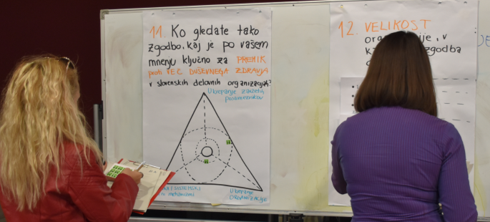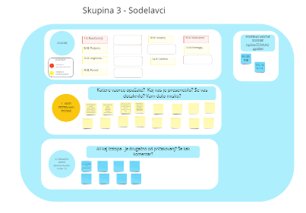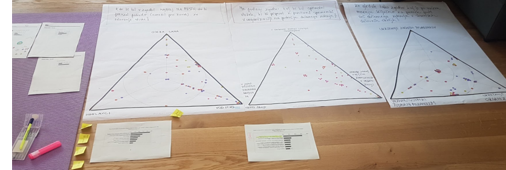Mental Distress at Work | National Institute of Public Health of Slovenia
- Voices That Count

- Dec 20, 2023
- 2 min read
Updated: Oct 21, 2024
The Mental Distress at Work project, initiated by the National Institute of Public Health of Slovenia (NIJZ), tackled the critical issue of workplace mental health, focusing on reducing stigma and shaping future strategies. By collecting microstories from employees across various sectors, the initiative highlighted both supportive and unsupportive responses to mental health challenges at work. These personal accounts revealed the lived realities of mental distress, offering a more nuanced understanding of workplace mental health compared to traditional surveys.

Key stakeholders—mental health professionals, public health experts, trade union representatives, human resources professionals, and employees—were actively collecting the microstories and interpreting the qualitative and quantitative data. This collaborative process strengthened relationships and built trust across the occupational mental health ecosystem.
The project’s narrative-driven approach amplified the voices of individuals whose mental health challenges might have otherwise gone unnoticed in more conventional studies. This helped bring the most vulnerable and underrepresented perspectives to the forefront of workplace policy discussions.
The project’s findings are shaping national policies to improve workplace mental health. The research emphasizes the need for ongoing leadership training, access to external expert support, and cultivating a workplace culture that prioritizes empathy and open dialogue around mental health.
"The approach is very interesting and demonstrates that qualitative research might indeed be the future of social research and understanding societal dynamics. While this approach could have been prepared narrowly, focusing solely on solutions at the individual level, you have succeeded in shaping it in a way that allows us to draw conclusions from individual stories about problems and solutions across all levels relevant to workplace mental health – the individual, organizational, and societal/systemic levels. It is certainly a fresh approach, with which you have managed to extract key areas for action to improve the mental health of the active population. Congratulations."
Dr. Tanja Urdih Lazar, Clinical Institute of Occupational, Traffic, and Sports Medicine, Ljubljana University Medical Centre
Download the full report (in Slovenian):






Comments